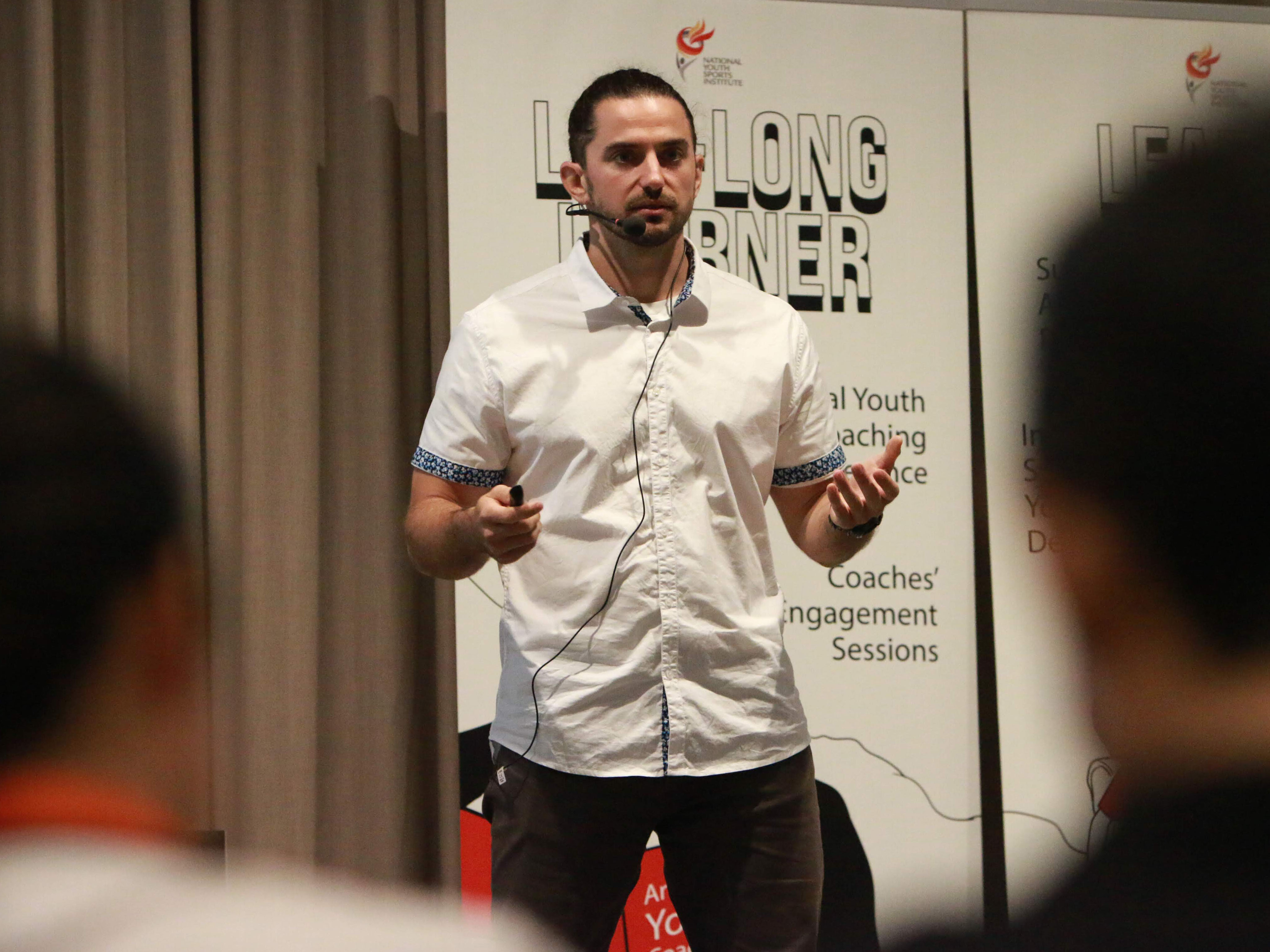Creating a Nurturing Environment for Long Term Sporting Success
 Mr Andrew Pichardo making his keynote speech at the 2019 Youth Coaching Conference.
Mr Andrew Pichardo making his keynote speech at the 2019 Youth Coaching Conference. Maturation plays a large role in talent identification and athletic development. Knowing when maturation takes place for athletes helps coaches plan their trainings.
This was the topic Mr Pichardo shared in his keynote speech at the 2019 Youth Coaching Conference held on 25-26 Jan.
“Even though they are getting bigger and taller, they are not getting stronger so there is a greater risk of injury during the growth spurt. Their bodies are going through changes so coaches are putting them at risk of injury if they don’t take that into account,” Mr Pichardo warned.
The timing and tempo of growth spurts varies among individuals and is dependent on their biological maturation.
Although important, coaches usually do not account for these factors. This can lead to coaches having a bias against some athletes. He added, “As they (children) grow up, it’s human nature for them to tend to compare themselves to other peers. Ironically, coaches’ perception of long-term potential is also biased by maturational variation. Even though they perform similarly on the test, they still think that bigger kids are going to make it further. Even parents inevitably compare their kids to other kids when it comes to selection processes.”
Mr Pichardo provided some strategies coaches can use to mitigate these comparisons and to keep athletes motivated, one of which is bio-banding. As most competitions are sorted out by chronological age, bio-banding group kids based on their maturation instead will allow kids to compete against others of similar physical abilities.
Another strategy Mr Pichardo shared to get the kids to enjoy physical training in the long run is using the concept of flow, which is finding the right balance between challenge and skill level. If the challenge exceeds the skill, the child is likely to feel anxious, flustered and shut down. If the skill level exceeds the challenge, it won’t be fun for the child and he will get bored. Finding a balance between the two is where coaches need to focus their time and help the child find a flow state.
Mr Pichardo summarised, “It’s about creating ways to implement these practices that take little time and constraints but yet is very beneficial to them. When we want to create a nurturing environment, you have to be creative in ways to engage them and keep them coming back for more.”
“Break it down to their long term goals and what their outlook on sports is going to be. They might not want to be an Olympic champion. They might just want to have fun and play with their friends on the weekends. Be explicit with your athletes and be on the same page in terms of your expectations.